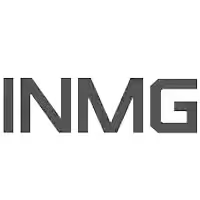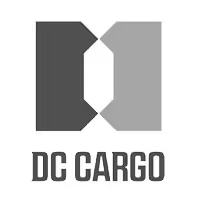How to Use the GSC API for Automation

The Google Search Console (GSC) API is a powerful tool designed to help website owners and developers automate various tasks related to their site's performance on Google search. By integrating this API into your workflows, you can save time and streamline processes, allowing for more efficient management of your website's search engine optimization (SEO) efforts. In this article, we will explore how to effectively utilize the GSC API for automation, including the setup and integration process, tasks that can be automated, and best practices for implementation.
How to Use the GSC API for Automation
The GSC API facilitates a seamless connection between your applications and Google Search Console, enabling you to programmatically retrieve and manage various types of data. This functionality allows you to automate repetitive tasks, such as fetching performance reports and submitting sitemaps, which can greatly enhance your website management. By streamlining these processes, you can focus on more strategic initiatives rather than getting bogged down in manual data handling.

Using the GSC API means you can easily integrate it with your existing tools or create custom scripts to gather insights, send alerts, or generate reports. Such automation is particularly beneficial for businesses with large websites or those that need to manage multiple domains. Understanding how to effectively leverage this API can significantly improve your SEO efforts and provide deeper insights into your website's performance in search results. Moreover, the ability to automate these tasks can lead to more timely decision-making, as data can be retrieved and analyzed in real-time, allowing for immediate adjustments to your SEO strategies.
Steps for setup and integration
To begin using the GSC API, you will need to follow several key steps to ensure proper setup and integration with your development environment. Below are detailed instructions for getting started:
- Create a project in Google Cloud Console: First, visit the Google Cloud Console and create a new project. This project will be used to access the GSC API.
- Enable the GSC API: Within your project, locate the "API & Services" dashboard and search for the Google Search Console API. Once found, enable it to allow your applications to make requests.
- Obtain authorization credentials: To interact with the API, you'll need OAuth 2.0 credentials. In the API dashboard, navigate to "Credentials," click on "Create credentials," and choose "OAuth client ID." Follow the prompts to configure your consent screen and create the credentials.
- Set up a programming environment: You can use programming languages such as Python, Node.js, or Java to interact with the API. Depending on your choice, install the necessary libraries and set up your development environment accordingly.
- Write test scripts: Start with small scripts that test your ability to authenticate and retrieve basic data from the GSC API. This will help you build confidence in using the API and allow you to troubleshoot any issues that may arise.
By following these steps, you'll quickly set up the GSC API for automation, ready to take advantage of its features. Additionally, it's beneficial to familiarize yourself with the API documentation, as it provides valuable insights into the various endpoints and data structures available, which can enhance your understanding and implementation of the API.
Tasks automated with the API
The GSC API opens up numerous possibilities for automation, thus facilitating efficiency in managing your website's SEO. Here are some common tasks you can automate with the API:
- Fetch performance reports: Automate the retrieval of performance metrics, such as click-through rates, impressions, and average position for your pages in Google search results. This data is essential for tracking your SEO performance over time.
- Monitor indexing status: Using the API, you can programmatically check which URLs on your site are indexed by Google and identify any issues preventing them from being indexed.
- Submit sitemaps: Rather than manually submitting sitemaps through the GSC interface, you can automate this process, ensuring that your latest sitemaps are always updated in Google Search Console.
- Retrieve error reports: Identify crawl errors, mobile usability issues, and security concerns through automated API calls, allowing for quicker responses to potential problems that could impact your site's performance.
- Generate reports and dashboards: Create automated reports that synthesize key metrics from the GSC API and deliver insights to your team or management through email or dashboards.
Automating these tasks not only saves time but also ensures that you remain proactive in managing your website’s performance on Google search. Furthermore, the ability to schedule these automated tasks means that you can set them to run at optimal times, such as during off-peak hours, minimizing any potential impact on server performance while ensuring that you have the latest data at your fingertips. This level of automation can transform how you approach SEO, making it more data-driven and responsive to the ever-changing landscape of search engine algorithms.
Best practices for implementation
To make the most of the GSC API and ensure a smooth automation experience, consider implementing the following best practices:

1. Use structured error handling
When working with APIs, errors can occur for various reasons—network issues, incorrect parameters, or API limits. Implement structured error handling in your scripts to manage these situations gracefully. This could involve retrying failed requests or logging errors for review. Additionally, consider implementing exponential backoff strategies for retries, which can help prevent overwhelming the API during high traffic periods. This approach not only improves the reliability of your scripts but also demonstrates respect for the API's operational limits.
2. Monitor API usage
Be aware of the quotas and limitations imposed by the GSC API. Regularly monitor your API usage to ensure you do not exceed the allowed requests. Google provides information on quotas, and it’s a good practice to implement a method to track when you are nearing these limits. Utilizing tools like Google Cloud Monitoring can provide insights into your API usage patterns, allowing you to make informed decisions about optimizing your requests and avoiding unnecessary throttling.
3. Optimize for performance
Batch requests when possible to reduce the number of API calls. This can notably enhance the performance of your automation scripts. Additionally, caching frequently requested data can minimize the need for repeated API calls, thus improving efficiency. Consider setting up a local cache that stores recent responses, which can significantly decrease response times and reduce the load on the API. Furthermore, analyze the data you retrieve to determine which endpoints are most critical for your needs, allowing you to prioritize those in your automation efforts.
4. Keep documentation handy
Google has extensive documentation for the GSC API, providing critical details on endpoints, parameters, and response formats. Having this documentation readily available while developing will help you quickly troubleshoot issues and implement new features. Moreover, consider creating a personal cheat sheet summarizing the most frequently used endpoints and their parameters, which can serve as a quick reference guide during development. Engaging with the community through forums and discussion groups can also provide valuable insights and tips that may not be covered in the official documentation.
5. Continue learning and adapting
The digital landscape is ever-evolving, and staying up-to-date with new features and updates from Google Search Console is vital. Regularly review the official documentation and community discussions to adapt your automation strategies accordingly. Participating in webinars and online courses focused on API integration and data analysis can also enhance your skills and keep you informed about best practices and emerging trends in the field.
By adhering to these best practices, you’ll enhance the effectiveness of your automation efforts and ensure that your use of the GSC API aligns with industry standards. Additionally, fostering a culture of continuous improvement within your team can lead to innovative solutions and more efficient workflows, ultimately benefiting your overall digital strategy.
Conclusion
The integration of the Google Search Console API into your automation processes offers a wealth of opportunities to improve how you manage your website's SEO. From setup to automation tasks and best practices, utilizing the GSC API grants you vast capabilities to gain insights and streamline operations.
By investing time in learning how to effectively use the API, you can unlock powerful automation solutions that result in improved search performance, efficient management of tasks, and, ultimately, a more successful website.

As a Google Ads expert, I bring proven expertise in optimizing advertising campaigns to maximize ROI.
I specialize in sharing advanced strategies and targeted tips to refine Google Ads campaign management.
Committed to staying ahead of the latest trends and algorithms, I ensure that my clients receive cutting-edge solutions.
My passion for digital marketing and my ability to interpret data for strategic insights enable me to offer high-level consulting that aims to exceed expectations.
Google Partner Agency
We're a certified Google Partner Agency, which means we don’t guess — we optimize withGoogle’s full toolkit and insider support.
Your campaigns get pro-level execution, backed by real expertise (not theory).

4.9 out of 5 from 670+ reviews on Fiverr.
That’s not luck — that’s performance.
Click-driven mind
with plastic-brick obsession.
We build Google Ads campaigns with the same mindset we use to build tiny brick worlds: strategy, patience, and zero tolerance for wasted pieces.
Data is our blueprint. Growth is the only acceptable outcome.














